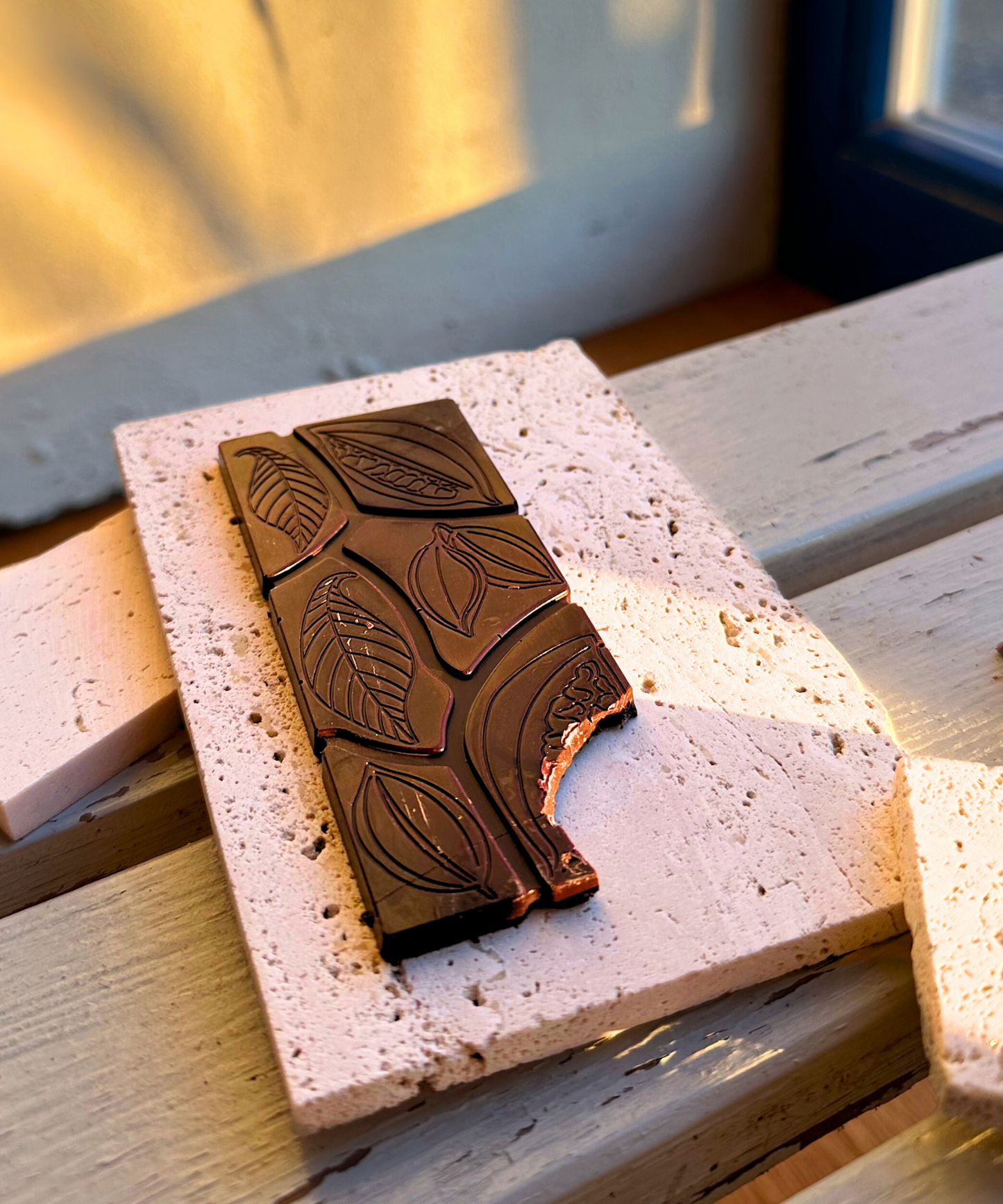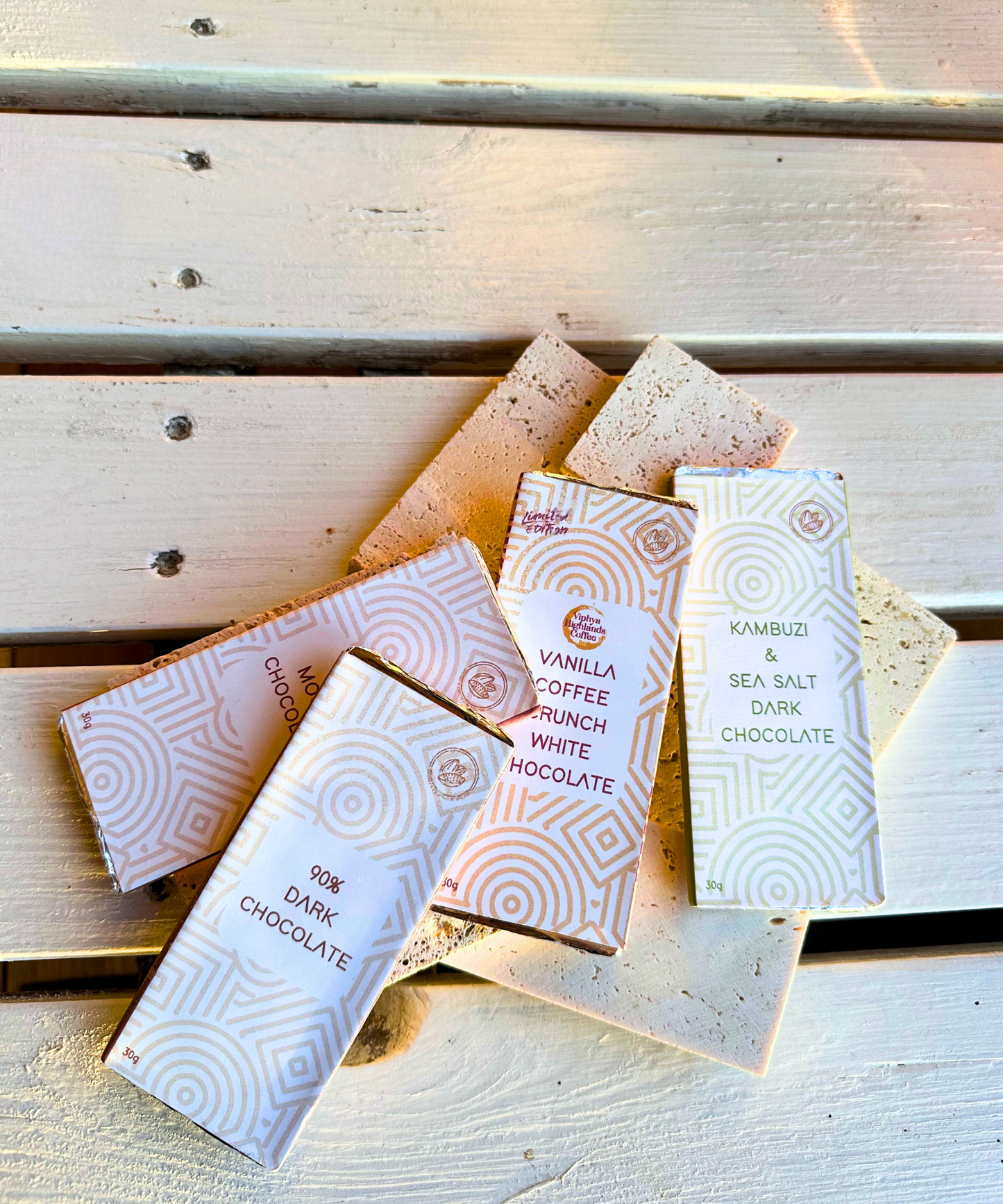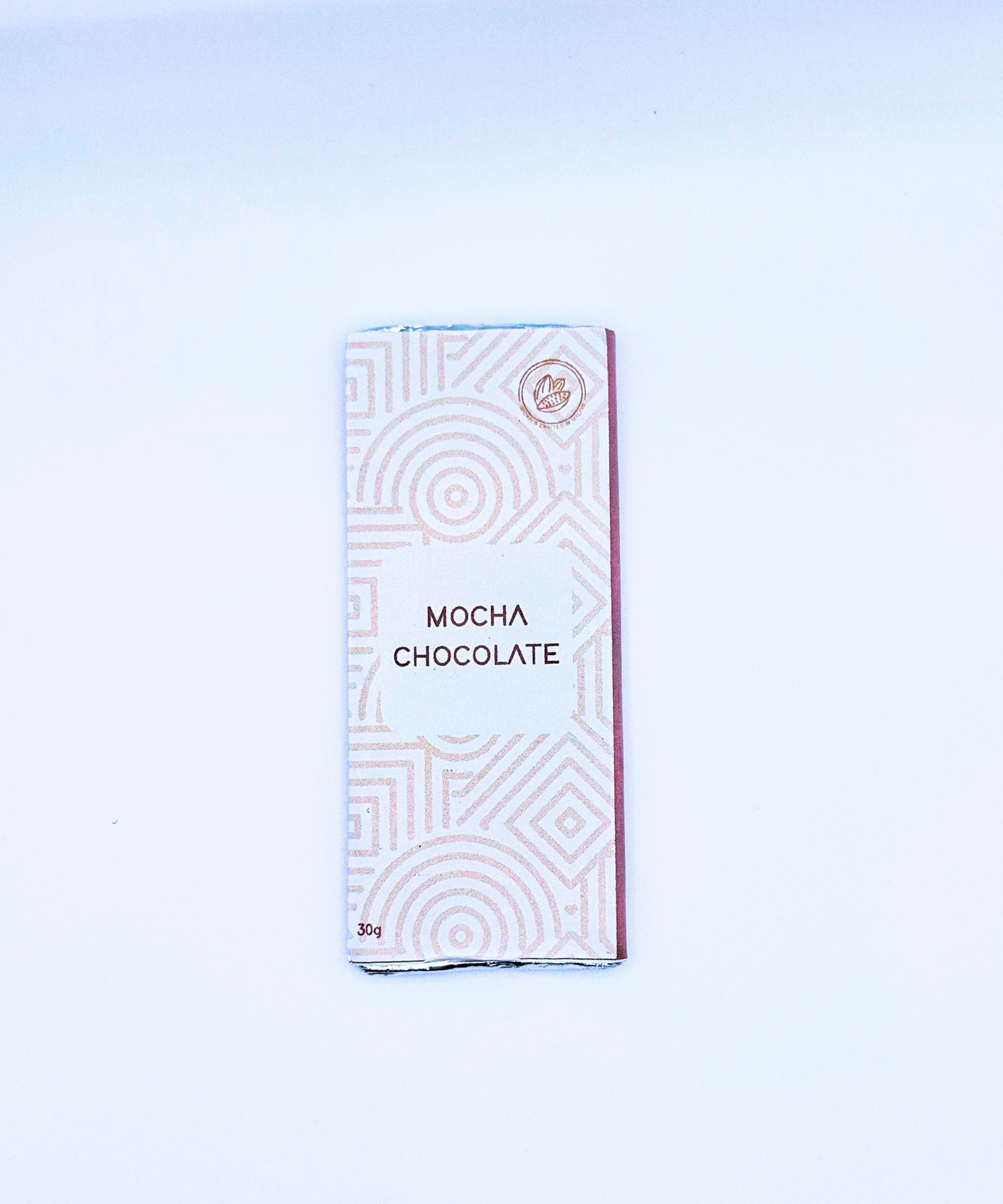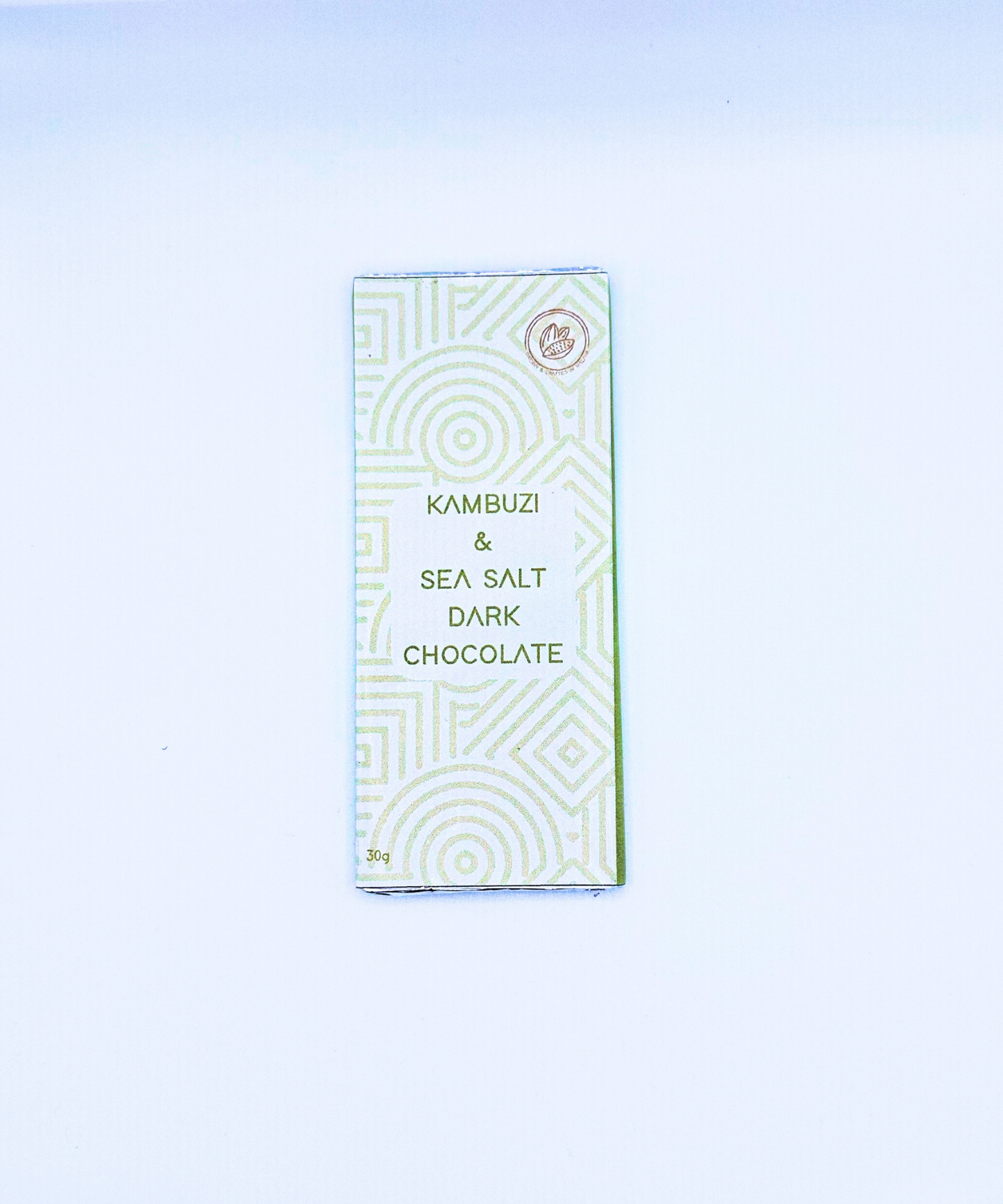Kwanza Cocoa
Chocolate - various varieties (30g)
Chocolate - various varieties (30g)
According to §19 UStG, no sales tax is charged.
Couldn't load pickup availability
High-quality chocolate made from sustainably grown cocoa. The cocoa beans are harvested on the small family farm in Luwazi, not far from Lake Malawi, and then processed into the finest chocolate by the founder and her two employees in an in-house factory in Mzuzu.
The unique recipe combines local ingredients such as Gondolosi, Kambuzi chili or coffee and combines traditional craftsmanship with environmentally friendly production. Kwanza Cocoa stands for enjoyment with heart, quality and sustainability.
Learn more about the story behind the chocolate below.
DETAILS
DETAILS
Artisanal chocolate – made from bean to bar.
- No artificial flavors or colors
- Made from sustainably grown cocoa
- 30g
INGREDIENTS BY TYPE
- 90% Dark Chocolate: Cocoa beans, cocoa butter, cane sugar
- Mocha Chocolate: Cocoa beans, cocoa butter, cane sugar, whole milk powder, Maravi coffee
- Dark chocolate with Kambuzi chili & sea salt: cocoa beans, cocoa butter, cane sugar, dehydrated Kambuzi chili, sea salt
- Gondolosi Dark Milk Chocolate: Cocoa beans, cocoa butter, cane sugar, whole milk powder, Mondia Whitei powder
- White Chocolate with Vanilla, Coffee & Crunch: Cocoa butter, cane sugar, whole milk powder, Tanzanian vanilla, Viphya Highlands coffee
VERDAND
VERDAND
Delivery time
- Germany: 2 - 5 working days
- Sustainable packaging and climate-friendly with DHL GoGreen
Shipping costs
- Germany : 2,50 €
- EU: 6,50 €




DIE GESCHICHTE & GESICHTER DAHINTER

Die Frau hinter der Schokolade: Wezi Mzumara
Wezi, die Gründerin von Kwanza Cocoa, begann ihre Reise im Jahr 2011 mit ein paar Kakaopflanzen auf dem Land ihrer Eltern in Luwazi, nahe des Malawisees. Nach den ersten Erfolgen pflanzten sie 2015 über 1.000 Bäume. Während der Pandemie begann sie, Schokolade in ihrer Küche herzustellen, und baute 2023 schließlich ihre eigene kleine Manufaktur.
Heute kombiniert sie ihre Leidenschaft für Kakao mit nachhaltiger
Innovation und produziert in einem "Bean-to-Bar"- und "Farm-to-Bar"-Ansatz exquisite Schokoladen, die die Essenz Malawis verkörpern.
How does the FAQ section work?
Its simple really. You just add the questions as blocks and then you edit the question and answer.
How does the FAQ section work?
Its simple really. You just add the questions as blocks and then you edit the question and answer.
How does the FAQ section work?
Its simple really. You just add the questions as blocks and then you edit the question and answer.

The Faces behind
The Woman behind the Chocolate: Wezi Mzumara
Wezi, the founder of Kwanza Cocoa, began her journey in 2011 with a few cocoa plants on her parents' land in Luwazi, near Lake Malawi. After initial successes, they planted over 1,000 trees in 2015. During the pandemic, she started making chocolate in her kitchen and eventually built her own small factory in 2023. Today, she combines her passion for cocoa with sustainable innovation, using a bean-to-bar and farm-to-bar approach to produce exquisite chocolates that embody the essence of Malawi.

The Story
The Farm
The Kwanza Cocoa Farm is located in the fertile Luwazi Valley, just 20 kilometers from Lake Malawi. The proximity to the lake and the high rainfall provide ideal conditions for growing cocoa. Over 3,000 new cocoa trees are planted every year, including the Trinitario, Forastero and Criollo varieties. Using organic methods such as neem oil and moringa instead of chemical pesticides, the farm creates a sustainable cycle. In addition to cocoa, the team also grows moringa and corn. Wezi and her family combine tradition and innovation on the farm to create high-quality and environmentally friendly products.

The Story
The Chocolate Factory
In a small, family-run factory in Mzuzu, the cocoa beans are processed into chocolate creations. Here, Wezi and two employees work on unique recipes that incorporate local ingredients such as Kambuzi chili, coffee or Gondolosi. Since 2021, the chocolate has been produced directly on site - from the bean to the bar, everything stays in Malawi. This local added value creates jobs, strengthens the community and helps promote traditional craftsmanship.

The Story
The Impact
Kwanza Cocoa has a sustainable and social impact on the community and the environment:
Gender equality: 60% of employees are women. The farm also supports female cocoa farmers with free seedlings and training.
Sustainability: The chocolate is entirely produced and sold in Malawi, which minimizes the CO₂ footprint.
Environmental protection: By planting over 3,000 trees annually and working with farmers in the outgrower program, traditional cultivation methods are preserved and the environment is protected.




